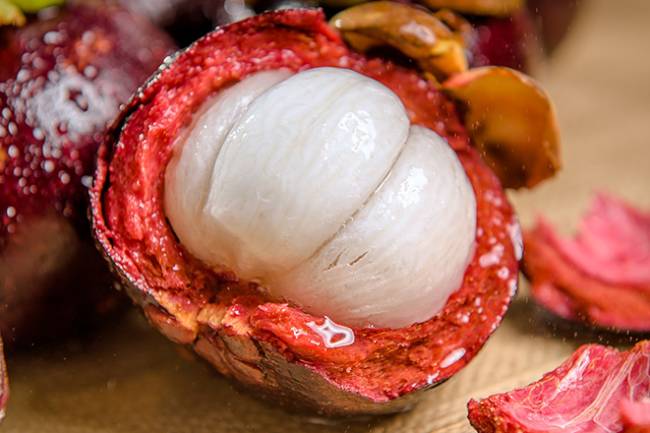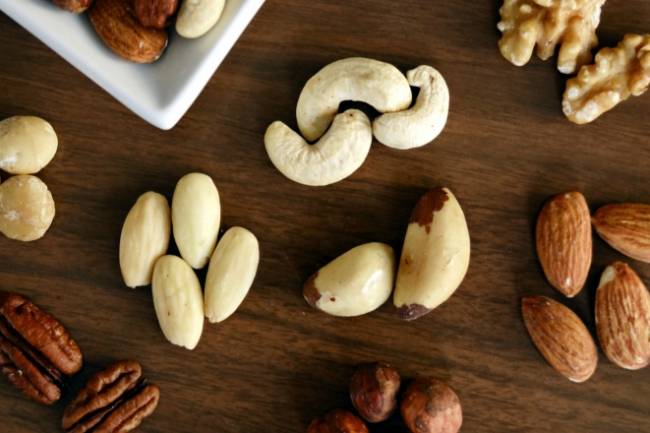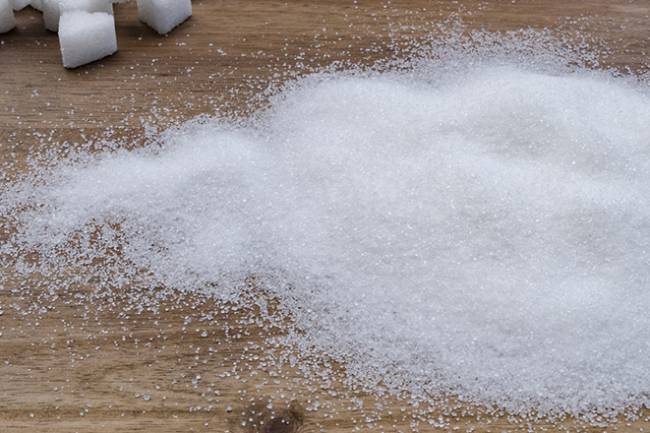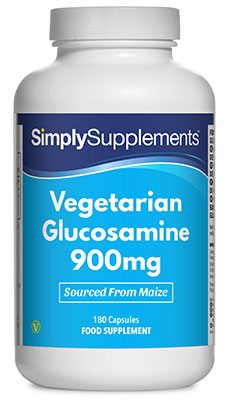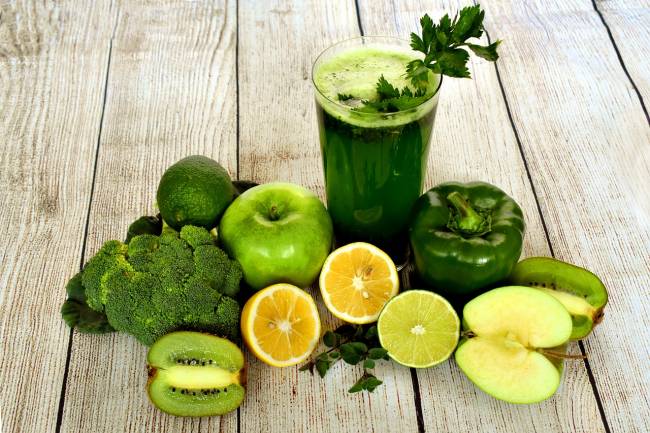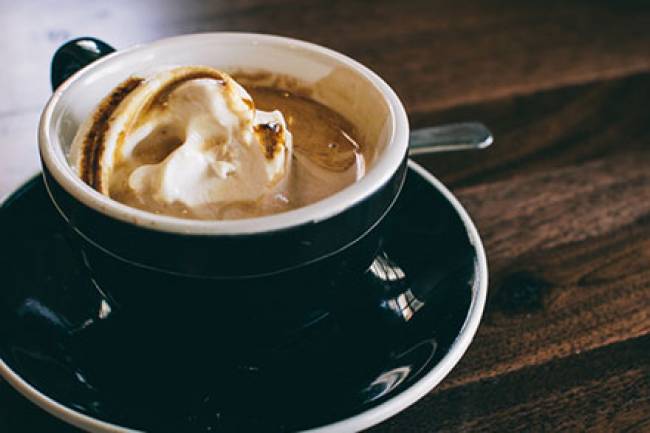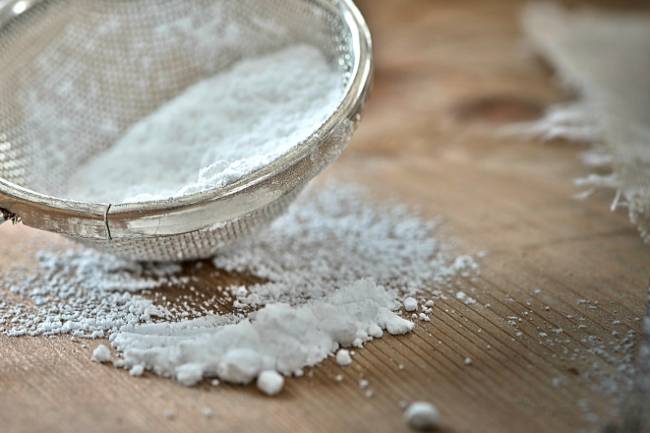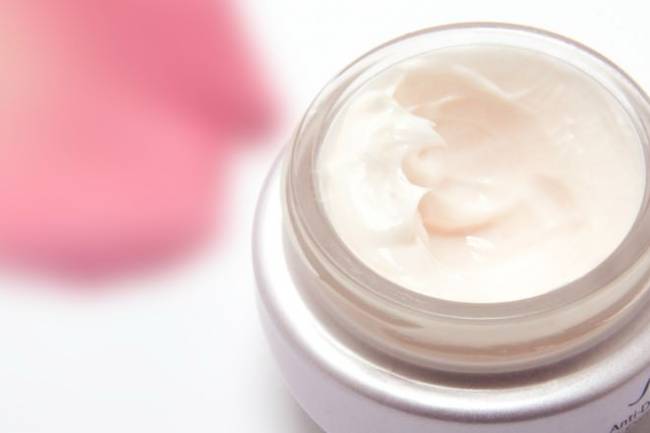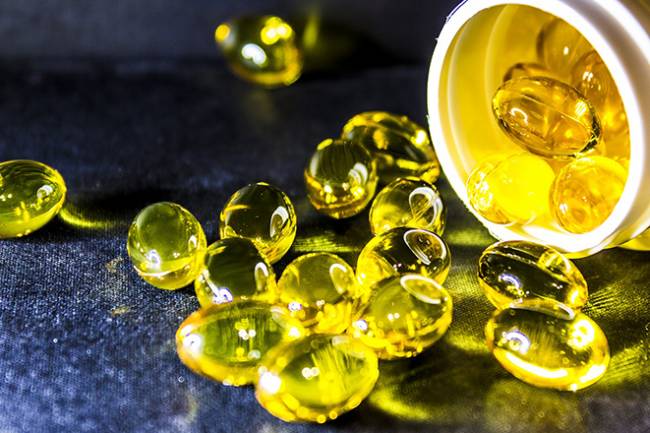Tart Cherry Juice for Sleep
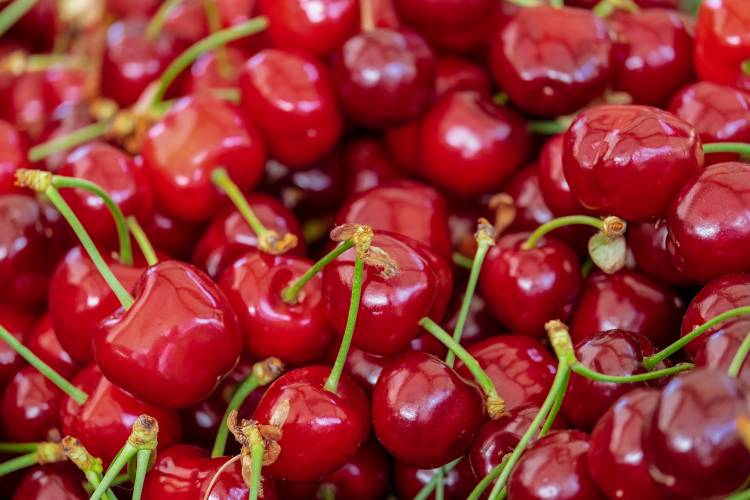
Tart cherries have developed a reputation in recent years for helping to improve sleep. But is there really any evidence that this is the case?
In this article we’re going to delve into the research to gain a fair view of what scientists have discovered so far. We’ll break down the question of whether tart cherries really help with sleep into a number of individual steps.
Firstly, what are the nutrients contained in tart cherries that are alleged to help with sleep?
Secondly, what evidence is there that these nutrients actually have any effect on sleep?
Lastly, we’ll bring these discoveries together, to see whether there are any direct links found between cherry consumption and sleep patterns.
Nutrients from Tart Cherries Supposedly Beneficial for Sleep
Let’s start off with the basics: what is in tart cherries that supposedly supports healthy sleep?
Like many plants, tart cherries are packed with a range of so-called “phytonutrients”. Many of these are thought to offer anti-oxidant properties, helping to protect the plant from sun damage. These nutrients tend to be particularly prevalent in the fruits, which can be at most damage from oxidative damage.
There is also evidence to suggest that these phytonutrients also have a role to play in when cherry fruits actually ripen, with levels varying depending on environmental conditions.
Three specific nutrients are found in cherries which are associated with sleep - tryptophan, serotonin and melatonin.
Tryptophan is an amino acid that cannot be created by the body. It must therefore be consumed in the diet, leading nutritionists to label it an “essential amino acid”.
Interestingly, while tryptophan has a wide number of roles in the body, most interesting here is that it is a key ingredient used in the creation of serotonin and melatonin. To demonstrate this, studies have shown conclusively that an increased intake of dietary tryptophan increases both serotonin and melatonin in the body.
The question is really whether there is evidence that tryptophan, serotonin or melatonin have any effect on sleep?
Effects of Tryptophan and Melatonin on Sleep
Let’s start by looking at tryptophan.
One relevant study dosed volunteers with either one gram of tryptophan taken as a supplement 45 minutes before bed or a placebo. The participant’s sleep patterns were then monitored thereafter.
Positively, the data showed that such a dose of tryptophan can “decrease the time taken to fall asleep”. Even more interestingly, follow-up studies found “no effects on alertness the next day”. This is sometimes known as the “hangover effect” and any nutrient that boosts sleep without affecting performance the next day can be particularly useful.
A similar study provided higher doses of tryptophan - in this case 7.5g per day. Sleep was then monitored with EEGs. The experts reported “extreme drowsiness and reduce[d] time awake” from the participants.
Linking melatonin to sleep is even easier, as the link is well-established within the scientific literature.
It has long been noted, for example, that insomniacs tend to have lower levels of melatonin circulating around their bodies.
One article published in the aptly-named Journal of Sleep summarized that melatonin typically leads to “acute sleep promotion that typically occurs within one hour of administration”.
More intriguingly, however the same paper also pointed to the fact that melatonin also seems to help keep one asleep, regulating what they called the “circadian pacemaker” which wakes us up in the morning (or more frequently, if you are unlucky).
One striking example of melatonin’s effects on sleep involved a study whereby participants were given reasonably small doses (as little as 0.3mg) in the early evening then had their sleeping patterns monitored.
It should hardly be surprising that these individuals fell asleep sooner and progressed to deep sleep more efficiently. What is perhaps more interesting is that the volunteers themselves were asked to predict whether they had been given the melatonin tablet or a placebo after consumption. In almost every instance the volunteers guessed right, suggesting a very real effect that can be sensed by the individual.
Perhaps most succinctly one paper concluded in no uncertain terms that “melatonin induces sleep over a wide range of doses”.
Lastly it is worth highlighting a meta-analysis of the nutritional factors affecting sleep. Considered the “gold standard” of scientific investigation, this study pooled the results of dozens of previous investigations and assessed the rigor of the tests themselves with a view to identifying common themes throughout the findings. This extensive process concluded that “foods containing tryptophan, melatonin, and phytonutrients (e.g. cherries), were linked to improved sleep outcomes”.
Why Montmorency Cherries?
While we’ve seen that nutrients found in tart cherries can induce sleep, one obvious question is why the majority of cherry supplements use one specific variety - Montmorency cherries? What makes them so different to the sort of cherries you might buy from the supermarket to enjoy like any other fruit?
Nutritional analysis shows that while the specific phytonutrients found in cherries tend to reasonably uniform in type, they can differ wildly in strength and volume.
One of the most-quoted studies in this regard compared the constituents of Montmorency cherries and another sour cherry known as the Balaton. The results showed that Montmorency cherries contained roughly six times more melatonin than the Balaton.
Furthermore, having collected cherries from a range of different areas the scientists claimed that “neither the orchard of origin nor the time of harvest influenced the amount of melatonin”.
It seems that Montmorency cherries have become the defacto sour cherry for a reason, particularly when it comes to sleep. They simply have far more of the beneficial nutrients than other available varieties.
Do Tart Cherries Help Sleep?
So far we’ve seen encouraging evidence that nutrients contained in tart cherries can contribute to healthier sleep. But how does this translate in the real world? Can we be sure these nutrients are properly absorbed in the gut and have their desired effect?
Fortunately while studies on the effects of tart cherries on sleep are fewer than those looking at tryptophan and melatonin, there are still a number of published reports we can investigate.
In the first such investigation, published in the Journal of Medicinal Food, older adults suffering from insomnia were provided either tart cherry juice or a placebo. While the sample size of 15 adults is quite small, the researchers concluded confidently that they had observed statistically significant changes in “all sleep variables” which included time taken to fall asleep and total sleep time.
A second study found similar results, claiming “beneficial effects on actual sleep time, total nocturnal activity, assumed sleep, and immobility” in those individuals given cherry juice as a supplement.
Lastly, there is one other fascinating discovery worth discussing.
While the human body can and does turn tryptophan into melatonin, there are also forces that work in the opposite direction. Tryptophan itself may be broken down by the body with the composite parts used in other chemical processes.
Studies have shown that the antioxidant nutrients found in cherries can actually inhibit this decomposition pathway. This means that not only do tart cherries contain impressive tryptophan volumes, but thanks to the lack of break-down there is a very clear relationship between cherry consumption and tryptophan availability within the body. Furthermore, we know that tryptophan is turned into melatonin, and that melatonin helps to boost sleep.
Conclusion
As we have seen, there is clear evidence of a link between tart cherries and sleep. We’ve seen that tart cherries contain tryptophan, and that this is turned into melatonin in the body.
At the same time, we know that tart cherries also contain this “finished ingredient”. Furthermore, we’ve seen that Montmorency cherries in particular have notably higher melatonin levels than many other cherries.
Lastly, there is a modest amount of evidence to link the two, and suggest that the consumption of tart cherries, either in the form of fresh juice or a powdered supplement, can help to promote healthy sleep.
The most common benefit associated with tart cherries is shortening the time it takes to fall asleep. At the same time, however, studies have indicated that other elements may also benefit, including total sleep time and less likelihood to wake up during the night.
While this may all sound like quite a clear cut message, the reality sadly isn’t quite that definitive. Firstly, many of the studies outlined above found differing results between individuals. For example, it would seem from the evidence that people suffering from mild insomnia benefitted more than those with more serious conditions.
Additionally, the effects on some individuals are quite modest, though admittedly more pronounced in others.
The reality is that while tart cherry can be efficacious for some individuals, others may experience little or no obvious effect. While this is no reason not to try tart cherry supplements, it is also important to maintain a healthy perspective. If tart cherry doesn’t work for you then by all means consider one of the alternatives available. However without giving it a fair try to begin with you just will never know how your body reacts.
What we can say with confidence is that none of the studies on tart cherries have found unpleasant side-effects, so experimenting with a tart cherry supplement to support sleep is pretty much risk-free.
Sources:
https://www.healthline.com/nutrition/tryptophan
https://pubs.acs.org/doi/abs/10.1021/jf010321+
https://www.ncbi.nlm.nih.gov/pmc/articles/PMC161739/
https://onlinelibrary.wiley.com/doi/abs/10.1111/j.1469-8986.1972.tb03218.x
https://www.ncbi.nlm.nih.gov/pmc/articles/PMC5617749/
https://www.liebertpub.com/doi/abs/10.1089/jmf.2009.0096
https://www.mdpi.com/2072-6643/12/4/936
https://academic.oup.com/sleep/article/20/10/899/2726010?login=true
https://link.springer.com/article/10.2165/00023210-200721120-00004
https://www.bmj.com/content/309/6948/167.short
https://ascpt.onlinelibrary.wiley.com/doi/abs/10.1016/0009-9236(95)90040-3

 Richard
Richard 